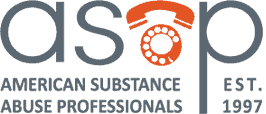More and more employees are testing positive for drugs in workplace screenings, an increase that is concerning for some employers and safety specialists.
According to a study by Quest Diagnostics, positive drugs tests have increased significantly in a two-year period between 2015 and 2017. Marijuana is the substance most often detected in workplace drug screenings, and analysis found that it was detected 33% more often in 2017 than in 2015. That jump may be expected, as more states make cannabis legal for recreational and medicinal use.
However, it’s alarming that the industry with the most significant increase was transportation and warehousing. In this industry, people often operate heavy machinery, and being intoxicated could put them at risk for accidents, human resources expert Rob Wilson, president of Employco USA, told WXYZ Detroit.
“Test results showed that there was a double-digit jump of marijuana use in transportation and warehouse fields, which could be very problematic as operating heavy machinery while under the influence of marijuana could be very dangerous indeed,” he said.
Despite the fact that more states are legalizing cannabis, employees could still put their jobs at risk by using it. Whether or not medical use of cannabis is protected is the subject of many legal battles, but Wilson said that employers can treat cannabis like other legal substances: employees can use them, but not at work.
“While it is against the law to discriminate against someone simply because they have a medical marijuana card, as this could be seen as discrimination against someone with a disability, you can still require sobriety among your employees and treat marijuana the same way you would alcohol or prescription drugs like Vicodin. Whether an employee is driving heavy machinery or approving loans, you need your workers to be clear-headed and capable of performing at a high level,” he said.
However, this can complicate drug testing because the tests usually just show whether a substance is in someone’s system, without indicating the level, which is needed to know whether someone is currently under the influence of marijuana.
In addition, employers could face pushback for testing employees, Wilson said.
“Your ability to monitor drug use among your employees is going to depend on whether or not you are a unionized or private workplace,” he explained. “While you have the right to expect and require sobriety from workers on the job, it can become a bit tricky when you suspect drug use and want to act on your fears.”
In addition to marijuana, more people also tested positive for cocaine and amphetamines, suggesting that the rise in positive tests can’t be wholly explained by cannabis legalization.

